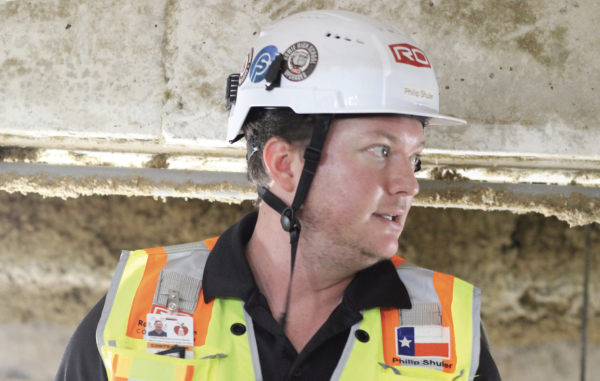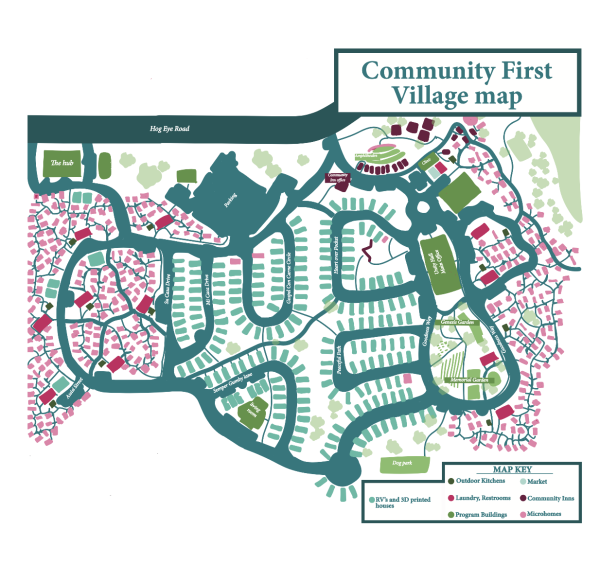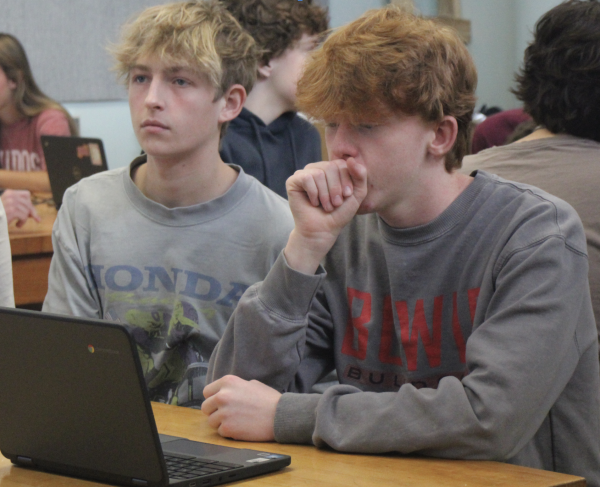Temporary heating systems
In the dead of winter, the heating system in all of the academic classrooms goes out. Students and staff around campus wonder what could have caused this.
The community was told that the construction over the summer would solve the ventilation problems. However, according to principal Mark Robinson, another problem arose.
“All of the work that was done this summer was replacing hydroponic piping, which is basically pipes that carry hot and cold water that drive our heating and cooling ventilation system,” Robinson said. “The problem that we ended up having was that we had new equipment in part of the system that shows the flaws in the older part of the system.”
Robinson and AISD are still working on HVAC repairs, but in the meantime, a quick solution has been found to cover heating in the school.
“Once the system failed several times and we got to where it was extremely cold on some of those days, it made working conditions for staff or the learning environment for students practically unusable,” Robinson said. “We started to address it a little more directly.”
The school decide to rent out portable heating systems so the classrooms can be filled with heat, while they work to fix the problems.
“The temporary plan that we put in place was the heating units in the classrooms,” Robinson said. “We had a large number of them, because we have a large number of classrooms.”
For yearbook advisor Lindsey Shirack, the space heaters were a tremendous help to battle the fluctuating temperatures in her room.
“These heaters were helpful because my room consistently struggles to maintain an appropriate temperature,” Shirack said. “For example, our yearly record so far is 52.9 degrees. The space heater was the first time we actually hit 70 degrees in the classroom and students commented how much better of an environment it was.”
AP Biology teacher Jessica Davis notes that when she tested her heater out, the noise that came out was louder than expected.
“There was one day that I had to use the heater and they were really loud and I didn’t really care for the background noise [because] they were too loud,” Davis said. “On the day I used the heaters we were just lecturing so the heater wasn’t too bad [of a distraction] but if we were testing I imagine it would be a distraction.”
Senior Amanda Harms, also agrees that the heaters were a distraction in the classroom, and not only for the noise that came with them operating.
“The heaters were a distraction for the first part of class on the first day that our teachers used them because they’re so huge they get in the way and we talked about that,” Harms said.
Harms wasn’t a fan of the heaters, noting they just created a distraction for the classroom instead of helping it.
”I personally didn’t think that the heaters did a great job at providing heat for the whole classroom,” Harms said. “They did not seem to do their jobs well,were in the way of where you were trying to go in the classroom, and only provided heat from the place that they were put.”
After a couple of weeks the heaters were returned since they were rentals, however Robinson notes that if needed, the school would rent the heaters again to provide heat if the HVAC system wasn’t in the best condition.
“Through this most recent episode with the district, I feel like the precedent is that before the year and a half that I’ve been at Bowie that in the past we’ve just kind of had to suffer through [the current heating conditions],” Robinson said. “But now that I know that there is a response that can get us a better working and learning environment, I feel like a precedent has been set for us to be able to say we’re having the same problem again.”
Robinson knows that the heaters might not be the cheapest solution for temporary heat in all the classrooms but he knows that the heaters will provide heat in some way for the Bowie staff and student body.
“We know that this urgent and we know that this is expensive but it’s what we need to do for our students and staff immediately,” Robinson said.
Your donation will support the student journalists of James Bowie High School. Your contribution will help cover our annual website hosting costs. Any contributions made through this service are NOT tax deductible. If you would like to make a tax deductible donation OR to subscribe to our print edition, please contact us at [email protected].






